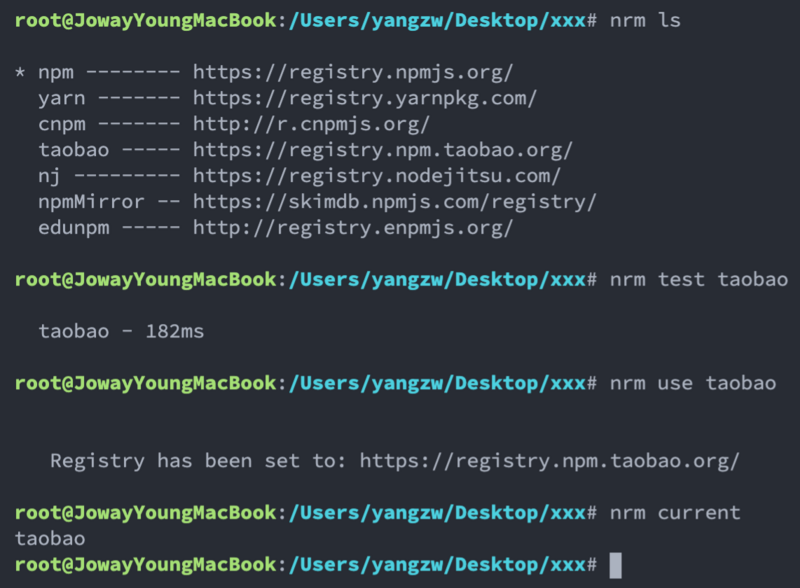聊聊DebeziumEngine

DebeziumEngine
debezium-v1.1.1.Final/debezium-api/src/main/java/io/debezium/engine/DebeziumEngine.java
@Incubatingpublic interface DebeziumEngine<R> extends Runnable, Closeable {
//......
public static <T> Builder<T> create(Class<? extends ChangeEventFormat<T>> eventFormat) {
final ServiceLoader<Builder> loader = ServiceLoader.load(Builder.class);
final Iterator<Builder> iterator = loader.iterator();
if (!iterator.hasNext()) {
throw new DebeziumException("No implementation of Debezium engine builder was found");
}
final Builder builder = iterator.next();
if (iterator.hasNext()) {
LoggerFactory.getLogger(Builder.class).warn("More than one Debezium engine builder implementation was found, using {}", builder.getClass());
}
return builder;
}
//......
}
- DebeziumEngine提供了create方法,它接收eventFormat参数,然后使用ServiceLoader.load(Builder.class)加载Builder.class,然后返回第一个builder
DebeziumEngine.Builder
debezium-v1.1.1.Final/debezium-api/src/main/java/io/debezium/engine/DebeziumEngine.java
public static interface Builder<R> { Builder<R> notifying(Consumer<R> consumer);
Builder<R> notifying(ChangeConsumer<R> handler);
Builder<R> using(Properties config);
Builder<R> using(ClassLoader classLoader);
Builder<R> using(Clock clock);
Builder<R> using(CompletionCallback completionCallback);
Builder<R> using(ConnectorCallback connectorCallback);
Builder<R> using(OffsetCommitPolicy policy);
DebeziumEngine<R> build();
}
- Builder接口定义了notifying、using、build方法
EmbeddedEngine.BuilderImpl
debezium-v1.1.1.Final/debezium-embedded/src/main/java/io/debezium/embedded/EmbeddedEngine.java
public static final class BuilderImpl implements Builder { private Configuration config;
private DebeziumEngine.ChangeConsumer<SourceRecord> handler;
private ClassLoader classLoader;
private Clock clock;
private DebeziumEngine.CompletionCallback completionCallback;
private DebeziumEngine.ConnectorCallback connectorCallback;
private OffsetCommitPolicy offsetCommitPolicy = null;
@Override
public Builder using(Configuration config) {
this.config = config;
return this;
}
@Override
public Builder using(Properties config) {
this.config = Configuration.from(config);
return this;
}
@Override
public Builder using(ClassLoader classLoader) {
this.classLoader = classLoader;
return this;
}
@Override
public Builder using(Clock clock) {
this.clock = clock;
return this;
}
@Override
public Builder using(DebeziumEngine.CompletionCallback completionCallback) {
this.completionCallback = completionCallback;
return this;
}
@Override
public Builder using(DebeziumEngine.ConnectorCallback connectorCallback) {
this.connectorCallback = connectorCallback;
return this;
}
@Override
public Builder using(OffsetCommitPolicy offsetCommitPolicy) {
this.offsetCommitPolicy = offsetCommitPolicy;
return this;
}
@Override
public Builder notifying(Consumer<SourceRecord> consumer) {
this.handler = buildDefaultChangeConsumer(consumer);
return this;
}
@Override
public Builder notifying(DebeziumEngine.ChangeConsumer<SourceRecord> handler) {
this.handler = handler;
return this;
}
@Override
public Builder using(java.time.Clock clock) {
return using(new Clock() {
@Override
public long currentTimeInMillis() {
return clock.millis();
}
});
}
@Override
public EmbeddedEngine build() {
if (classLoader == null) {
classLoader = getClass().getClassLoader();
}
if (clock == null) {
clock = Clock.system();
}
Objects.requireNonNull(config, "A connector configuration must be specified.");
Objects.requireNonNull(handler, "A connector consumer or changeHandler must be specified.");
return new EmbeddedEngine(config, classLoader, clock,
handler, completionCallback, connectorCallback, offsetCommitPolicy);
}
// backward compatibility methods
@Override
public Builder using(CompletionCallback completionCallback) {
return using((DebeziumEngine.CompletionCallback) completionCallback);
}
@Override
public Builder using(ConnectorCallback connectorCallback) {
return using((DebeziumEngine.ConnectorCallback) connectorCallback);
}
}
- BuilderImpl实现了Builder接口,其build方法创建的是EmbeddedEngine
EmbeddedEngine
debezium-v1.1.1.Final/debezium-embedded/src/main/java/io/debezium/embedded/EmbeddedEngine.java
@ThreadSafepublic final class EmbeddedEngine implements DebeziumEngine<SourceRecord> {
private final Logger logger = LoggerFactory.getLogger(getClass());
private final Configuration config;
private final Clock clock;
private final ClassLoader classLoader;
private final DebeziumEngine.ChangeConsumer<SourceRecord> handler;
private final DebeziumEngine.CompletionCallback completionCallback;
private final DebeziumEngine.ConnectorCallback connectorCallback;
private final AtomicReference<Thread> runningThread = new AtomicReference<>();
private final VariableLatch latch = new VariableLatch(0);
private final Converter keyConverter;
private final Converter valueConverter;
private final WorkerConfig workerConfig;
private final CompletionResult completionResult;
private long recordsSinceLastCommit = 0;
private long timeOfLastCommitMillis = 0;
private OffsetCommitPolicy offsetCommitPolicy;
private SourceTask task;
private EmbeddedEngine(Configuration config, ClassLoader classLoader, Clock clock, DebeziumEngine.ChangeConsumer<SourceRecord> handler,
DebeziumEngine.CompletionCallback completionCallback, DebeziumEngine.ConnectorCallback connectorCallback,
OffsetCommitPolicy offsetCommitPolicy) {
this.config = config;
this.handler = handler;
this.classLoader = classLoader;
this.clock = clock;
this.completionCallback = completionCallback != null ? completionCallback : (success, msg, error) -> {
if (!success) {
logger.error(msg, error);
}
};
this.connectorCallback = connectorCallback;
this.completionResult = new CompletionResult();
this.offsetCommitPolicy = offsetCommitPolicy;
assert this.config != null;
assert this.handler != null;
assert this.classLoader != null;
assert this.clock != null;
keyConverter = config.getInstance(INTERNAL_KEY_CONVERTER_CLASS, Converter.class, () -> this.classLoader);
keyConverter.configure(config.subset(INTERNAL_KEY_CONVERTER_CLASS.name() + ".", true).asMap(), true);
valueConverter = config.getInstance(INTERNAL_VALUE_CONVERTER_CLASS, Converter.class, () -> this.classLoader);
Configuration valueConverterConfig = config;
if (valueConverter instanceof JsonConverter) {
// Make sure that the JSON converter is configured to NOT enable schemas ...
valueConverterConfig = config.edit().with(INTERNAL_VALUE_CONVERTER_CLASS + ".schemas.enable", false).build();
}
valueConverter.configure(valueConverterConfig.subset(INTERNAL_VALUE_CONVERTER_CLASS.name() + ".", true).asMap(), false);
// Create the worker config, adding extra fields that are required for validation of a worker config
// but that are not used within the embedded engine (since the source records are never serialized) ...
Map<String, String> embeddedConfig = config.asMap(ALL_FIELDS);
embeddedConfig.put(WorkerConfig.KEY_CONVERTER_CLASS_CONFIG, JsonConverter.class.getName());
embeddedConfig.put(WorkerConfig.VALUE_CONVERTER_CLASS_CONFIG, JsonConverter.class.getName());
workerConfig = new EmbeddedConfig(embeddedConfig);
}
public void run() {
if (runningThread.compareAndSet(null, Thread.currentThread())) {
final String engineName = config.getString(ENGINE_NAME);
final String connectorClassName = config.getString(CONNECTOR_CLASS);
final Optional<DebeziumEngine.ConnectorCallback> connectorCallback = Optional.ofNullable(this.connectorCallback);
// Only one thread can be in this part of the method at a time ...
latch.countUp();
try {
if (!config.validateAndRecord(CONNECTOR_FIELDS, logger::error)) {
fail("Failed to start connector with invalid configuration (see logs for actual errors)");
return;
}
// Instantiate the connector ...
SourceConnector connector = null;
try {
@SuppressWarnings("unchecked")
Class<? extends SourceConnector> connectorClass = (Class<SourceConnector>) classLoader.loadClass(connectorClassName);
connector = connectorClass.getDeclaredConstructor().newInstance();
}
catch (Throwable t) {
fail("Unable to instantiate connector class "" + connectorClassName + """, t);
return;
}
// Instantiate the offset store ...
final String offsetStoreClassName = config.getString(OFFSET_STORAGE);
OffsetBackingStore offsetStore = null;
try {
@SuppressWarnings("unchecked")
Class<? extends OffsetBackingStore> offsetStoreClass = (Class<OffsetBackingStore>) classLoader.loadClass(offsetStoreClassName);
offsetStore = offsetStoreClass.getDeclaredConstructor().newInstance();
}
catch (Throwable t) {
fail("Unable to instantiate OffsetBackingStore class "" + offsetStoreClassName + """, t);
return;
}
// Initialize the offset store ...
try {
offsetStore.configure(workerConfig);
offsetStore.start();
}
catch (Throwable t) {
fail("Unable to configure and start the "" + offsetStoreClassName + "" offset backing store", t);
return;
}
// Set up the offset commit policy ...
if (offsetCommitPolicy == null) {
offsetCommitPolicy = config.getInstance(EmbeddedEngine.OFFSET_COMMIT_POLICY, OffsetCommitPolicy.class, config);
}
// Initialize the connector using a context that does NOT respond to requests to reconfigure tasks ...
ConnectorContext context = new ConnectorContext() {
@Override
public void requestTaskReconfiguration() {
// Do nothing ...
}
@Override
public void raiseError(Exception e) {
fail(e.getMessage(), e);
}
};
connector.initialize(context);
OffsetStorageWriter offsetWriter = new OffsetStorageWriter(offsetStore, engineName,
keyConverter, valueConverter);
OffsetStorageReader offsetReader = new OffsetStorageReaderImpl(offsetStore, engineName,
keyConverter, valueConverter);
Duration commitTimeout = Duration.ofMillis(config.getLong(OFFSET_COMMIT_TIMEOUT_MS));
try {
// Start the connector with the given properties and get the task configurations ...
connector.start(config.asMap());
connectorCallback.ifPresent(DebeziumEngine.ConnectorCallback::connectorStarted);
List<Map<String, String>> taskConfigs = connector.taskConfigs(1);
Class<? extends Task> taskClass = connector.taskClass();
task = null;
try {
task = (SourceTask) taskClass.getDeclaredConstructor().newInstance();
}
catch (IllegalAccessException | InstantiationException t) {
fail("Unable to instantiate connector"s task class "" + taskClass.getName() + """, t);
return;
}
try {
SourceTaskContext taskContext = new SourceTaskContext() {
@Override
public OffsetStorageReader offsetStorageReader() {
return offsetReader;
}
public Map<String, String> configs() {
// TODO Auto-generated method stub
return null;
}
};
task.initialize(taskContext);
task.start(taskConfigs.get(0));
connectorCallback.ifPresent(DebeziumEngine.ConnectorCallback::taskStarted);
}
catch (Throwable t) {
// Mask the passwords ...
Configuration config = Configuration.from(taskConfigs.get(0)).withMaskedPasswords();
String msg = "Unable to initialize and start connector"s task class "" + taskClass.getName() + "" with config: "
+ config;
fail(msg, t);
return;
}
recordsSinceLastCommit = 0;
Throwable handlerError = null;
try {
timeOfLastCommitMillis = clock.currentTimeInMillis();
RecordCommitter committer = buildRecordCommitter(offsetWriter, task, commitTimeout);
while (runningThread.get() != null) {
List<SourceRecord> changeRecords = null;
try {
logger.debug("Embedded engine is polling task for records on thread {}", runningThread.get());
changeRecords = task.poll(); // blocks until there are values ...
logger.debug("Embedded engine returned from polling task for records");
}
catch (InterruptedException e) {
// Interrupted while polling ...
logger.debug("Embedded engine interrupted on thread {} while polling the task for records", runningThread.get());
if (this.runningThread.get() == Thread.currentThread()) {
// this thread is still set as the running thread -> we were not interrupted
// due the stop() call -> probably someone else called the interrupt on us ->
// -> we should raise the interrupt flag
Thread.currentThread().interrupt();
}
break;
}
catch (RetriableException e) {
logger.info("Retrieable exception thrown, connector will be restarted", e);
// Retriable exception should be ignored by the engine
// and no change records delivered.
// The retry is handled in io.debezium.connector.common.BaseSourceTask.poll()
}
try {
if (changeRecords != null && !changeRecords.isEmpty()) {
logger.debug("Received {} records from the task", changeRecords.size());
try {
handler.handleBatch(changeRecords, committer);
}
catch (StopConnectorException e) {
break;
}
}
else {
logger.debug("Received no records from the task");
}
}
catch (Throwable t) {
// There was some sort of unexpected exception, so we should stop work
handlerError = t;
break;
}
}
}
finally {
if (handlerError != null) {
// There was an error in the handler so make sure it"s always captured...
fail("Stopping connector after error in the application"s handler method: " + handlerError.getMessage(),
handlerError);
}
try {
// First stop the task ...
logger.debug("Stopping the task and engine");
task.stop();
connectorCallback.ifPresent(DebeziumEngine.ConnectorCallback::taskStopped);
// Always commit offsets that were captured from the source records we actually processed ...
commitOffsets(offsetWriter, commitTimeout, task);
if (handlerError == null) {
// We stopped normally ...
succeed("Connector "" + connectorClassName + "" completed normally.");
}
}
catch (Throwable t) {
fail("Error while trying to stop the task and commit the offsets", t);
}
}
}
catch (Throwable t) {
fail("Error while trying to run connector class "" + connectorClassName + """, t);
}
finally {
// Close the offset storage and finally the connector ...
try {
offsetStore.stop();
}
catch (Throwable t) {
fail("Error while trying to stop the offset store", t);
}
finally {
try {
connector.stop();
connectorCallback.ifPresent(DebeziumEngine.ConnectorCallback::connectorStopped);
}
catch (Throwable t) {
fail("Error while trying to stop connector class "" + connectorClassName + """, t);
}
}
}
}
finally {
latch.countDown();
runningThread.set(null);
// after we"ve "shut down" the engine, fire the completion callback based on the results we collected
completionCallback.handle(completionResult.success(), completionResult.message(), completionResult.error());
}
}
}
public boolean stop() {
logger.debug("Stopping the embedded engine");
// Signal that the run() method should stop ...
Thread thread = this.runningThread.getAndSet(null);
if (thread != null) {
try {
latch.await(
Long.valueOf(
System.getProperty(WAIT_FOR_COMPLETION_BEFORE_INTERRUPT_PROP, Long.toString(WAIT_FOR_COMPLETION_BEFORE_INTERRUPT_DEFAULT.toMillis()))),
TimeUnit.MILLISECONDS);
}
catch (InterruptedException e) {
}
logger.debug("Interrupting the embedded engine"s thread {} (already interrupted: {})", thread, thread.isInterrupted());
// Interrupt the thread in case it is blocked while polling the task for records ...
thread.interrupt();
return true;
}
return false;
}
@Override
public void close() throws IOException {
stop();
}
}
- EmbeddedEngine实现了DebeziumEngine接口,其run方法主要是实例化SourceConnector,OffsetBackingStore,执行offsetStore.configure(workerConfig)及offsetStore.start()以及connector.initialize(context)、connector.start(config.asMap()),然后创创建connector task,执行task.initialize(taskContext)及task.start(taskConfigs.get(0));之后通过while循环执行task.poll()获取changeRecords,然后通过handler.handleBatch(changeRecords, committer)进行回调,最后在finally的时候执行task.stop()以及commitOffsets
小结
DebeziumEngine提供了create方法,它接收eventFormat参数,然后使用ServiceLoader.load(Builder.class)加载Builder.class,然后返回第一个builder;BuilderImpl实现了Builder接口,其build方法创建的是EmbeddedEngine
doc
- DebeziumEngine
以上是 聊聊DebeziumEngine 的全部内容, 来源链接: utcz.com/z/516453.html







